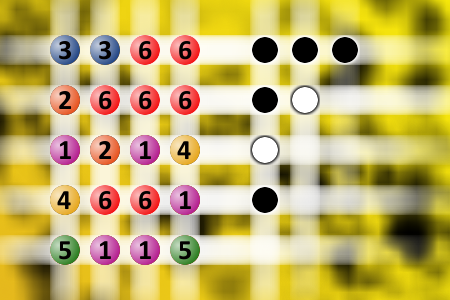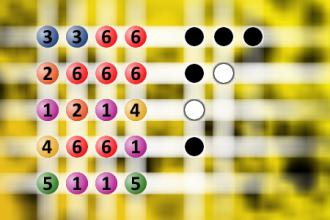What a winning combination?
The computer chose a secret code (sequence of 4 digits from 1 to 6). Your goal is to find that code. Black circles indicate the number of hits on the right spot. White circles indicate the number of hits on the wrong spot.Correct answers: 80
The first user who solved this task is Djordje Timotijevic.
#brainteasers #mastermind

An old man walks into a bar, s...
An old man walks into a bar, sits down, and starts crying.
The bartender asks, “What’s wrong?” The old man looks at the bartender through Teary eyes and between sobs says, “I married a beautiful woman two days ago. She’s a natural blonde, twenty-five, intelligent, a marvelous cook, a meticulous housekeeper, extremely sensitive to my wants and needs, very giving, my best friend, and intensely passionate in bed.”
The bartender stares at the old man for a brief moment and says, “But that sounds great! You have what every man wants in a woman, so why are crying?”
The old man looks at the bartender and says, “I can’t remember where I live!”
The bartender asks, “What’s wrong?” The old man looks at the bartender through Teary eyes and between sobs says, “I married a beautiful woman two days ago. She’s a natural blonde, twenty-five, intelligent, a marvelous cook, a meticulous housekeeper, extremely sensitive to my wants and needs, very giving, my best friend, and intensely passionate in bed.”
The bartender stares at the old man for a brief moment and says, “But that sounds great! You have what every man wants in a woman, so why are crying?”
The old man looks at the bartender and says, “I can’t remember where I live!”

